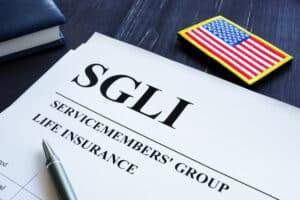“WE WERE ON GUARD DUTY AND ALL HELL BROKE LOOSE!”
That’s how Robert “Bobby” Sterrett of Monterey, Virginia, recalled the events of Dec. 16, 1944.
“Hell” was the massive German artillery barrage that was unleashed 70 years ago against the American Army. This was the opening salvo of what would be known as the Battle of the Bulge.
In the last major offensive action of the war in Europe, the German army attacked the American forces along a 60-mile front stretching from Luxembourg to Belgium. German forces numbered a half million men, along with tanks, artillery and just about anything else they could throw at the Americans.
My father, Robert “Bobby” Sterrett, was born in Staunton Aug. 24, 1924. In 1932, amid the Great Depression, his father lost his job at Staunton Military Academy, where he had been a math teacher since 1918. As a result, the family returned to their native Highland County.
After he graduated from Monterey High School in 1942, Bobby spent a semester at Western Kentucky University then enlisted in the Army and was assigned to the Army Specialized Training Program to get a degree in mine engineering. However, after the invasion of Europe on D-Day, the Army terminated the college program and sent the student soldiers to fill the ranks of newly-formed infantry divisions and as replacements for units whose ranks had been reduced by combat casualties.
Dad was assigned as an infantryman to the 395th Infantry Regiment of the 99th Infantry Division at Camp Maxey, Texas.
The 99th set sail in October of 1944 and arrived in Europe in early November.
On Nov. 9, dad’s unit went into combat on the Siegfried Line in Belgium overlooking the town of Monschau. Because he was a “college boy,” he was assigned to Headquarters Company, Second Battalion, as an infantry scout in the intelligence section. His job was to patrol and scout enemy positions and to obtain valuable combat intelligence. In enemy territory, he would draw rudimentary maps, gather information from enemy dead, interrogate captured German soldiers, dig foxholes, pull lots of guard duty and above all, try (in vain) to stay warm and dry.
After a period of time in combat, his division was taken off the line and was sent to a quiet sector of Belgium known as the Ardennes Forrest for supplies and refit. Here the units would receive replacement soldiers, supplies of food, munitions, fuel, etc. Based on the best information the allied commanders had at the time, there would be little action during the winter months and this would give the allies time to fully prepare for a spring offensive.
The Germans, it was believed by just about everyone, didn’t have much fight left in them and almost all the GIs were saying “it’ll all be over by Christmas.”
It was the coldest European winter in decades. Like thousands of other soldiers that winter, dad suffered from frost-bitten feet, a condition that would affect him for the remainder of his life. “You had to move about to keep warm, but moving about made you a target for a German sharpshooter.”
In the early morning hours of Dec. 16, the Germans began their massive and last offensive of the war in the Ardennes Forest, which would be known as the Battle of the Bulge. Their offensive began with one of the largest artillery barrages of the war, which lasted about an hour. My father and his buddy were guarding the headquarters “foxhole bunker” when shells began landing 15 yards from where they were standing. They dove for cover under the nearest obstacle they could find the ammunitions truck, fully loaded with precious ammo. “We were scared. We didn’t realize that we were under the ammo truck!”
After the barrage ended, dad and his buddy crawled back into their foxholes and waited for the inevitable German attack. (Their division was on the northern end of the American lines. The initial main German thrust had been against the center, near the town of Bastogne.)
After a heavy artillery battle near the town of Krinkelt, dad saw his company commander, Capt. Sommerville, sitting on a stump of a tree that had been blown to bits by tree burst shells. Dad approached Sommerville “sitting on a stump, hunched over, freezing rain falling off his helmet. “I never saw such a dejected figure in all my life.”
“Bob, we’re cut off, surrounded and I don’t think we’re gonna make it outta here,” Sommerville told him. This sent chills through my father, something he remembered for the rest of his life. He then returned to his foxhole and waited.
A few days later, his unit received orders to move out. As they were on the march, a colonel from his unit asked where they were going. He was told they received orders to move to the rear. “Like hell you did,” was the colonel’s reply. “Turn around and get back where you were.”
The Germans had infiltrated the American radio net and were issuing false instructions to American forces causing much confusion.
The next day, however, his unit did receive valid orders to relocate farther to the north near the Elsenborn Ridge area, where the Germans were engaged in a fierce artillery and tank battle with the Americans.
At one point during the battle, HQ Company was quartered in the house of a German doctor. Dad was working at a table making maps from aerial reconnaissance photos. People were coming and going and he wasn’t paying them much mind, when he happened to look up and there stood his brother, Lt. Douglas Sterrett, with a bottle of wine.
The initial German advance created a large “bulge” in the American lines. After much confusion, the Americans regrouped and managed to push the Germans back, recapturing all the ground they had lost. By the beginning of February 1945, the American lines were roughly in the same location as they were prior to the German attack. This was the last gasp for the German army. Hitler had played his final card on the Western front.
For the remainder of the war in Europe, dad went ahead of the main unit of advance to scout what lay ahead and report back to his battalion.
Later, the Fourth Infantry Division was slated to be one of many spearhead units in the planned invasion of the Japanese homeland. Dad said: “I knew I was gonna die.” Fortunately for him, while he was home on leave, Japan surrendered. World War II was over.
He would be awarded the Bronze Star for meritorious service and the Presidential Unit Citation for his actions in the Battle of the Bulge, and receive three campaign stars.
Dad returned to the Shenandoah Valley and became one of the original radio announcers on WTON in Staunton in 1946. He married Elizabeth Goode in 1947. My mother, father, older brother, grandmother and I lived in Fort Defiance and then Bridgewater.
Like most combat veterans of any war, he rarely mentioned his time in the war. Most of what I initially heard was from my mother. On rare occasion, he would answer a question or two, but mainly in vague terms.
One day, while I was stationed in West Germany with the USAF in 1983, he and I drove to Remagen. During the drive, he spoke in great length and detail of his time during the war. In 2002, sitting on the front porch of an old cabin in Highland County, he just started talking about his time in the Army.
This time, I had a video camera with me and recorded his story.
What I am writing is his story in his words. They may not jive with actual history, and even his recollection of some events differed as the years went by. This article is not meant to be historically accurate, rather to relay one man’s story, in his words as he remembers it.
I wish I could convey the angst and pain of his words. Seeing the pain on his face, hearing the cracking of his powerful, baritone voice as he describes what only those who have experienced the absolute fear, desperation and horror of war – any war – can ever know.
History will record the 99th Infantry Division was crucial in holding the line against repeated and relentless German attacks on the northern end of the American front.
The 395th Regiment would be awarded the Presidential Unit Citation for its role during the largest battle ever fought by the United States Army, the Battle of the Bulge, which began 70 years ago today.





